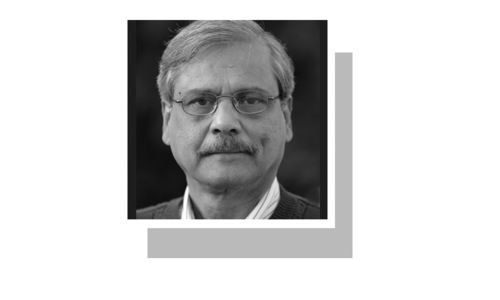Prime Minister Imran Khan on Friday invited PPP chairman Bilawal Bhutto-Zardari and former president Asif Ali Zardari to stage a sit-in against the government in Islamabad if they so wish, saying their efforts to bring down the PTI government "will not succeed".
Addressing a large public gathering in the Jamrud subdivision of Khyber district, the premier hit back at the PPP leadership after they had, a day earlier, hinted at launching a movement against Khan's government and putting Islamabad under siege.
"Zardari sahab: no matter how hard you push, this government is not going anywhere. But you are going to jail," he told the former president, who is currently embroiled in a high profile fake bank accounts case.
Read: No pardon for ‘corrupt’ opposition leaders: PM
Addressing Zardari's statement, that he (Zardari) would call on PPP workers to march on Islamabad, Khan said: "Asif Zardari, know that a dharna is successful only when you share the people's grief and stand up for them."
"I invite you and your son: come and stage a dharna in Islamabad," the prime minister continued, adding that he will not only arrange containers for the PPP leaders, but also provide them food.
"I challenge [you to] to spend one week in a container," he said, claiming they would not be able to do so because politicians become leaders with their struggles, not by inheriting a political party.
Prime Minister Khan also shot back at Jamiat Ulema-e-Islam chief Maulana Fazlur Rehman, who has announced he will launch a 'million march' to "get rid of this fascist government".
Recalling that Rehman had been "clean-bowled" in the 2018 general elections, the premier said the Maulana will not get another chance to be part of the government despite his efforts.
He also pointed out that the PTI government has been in office "for only seven months", but the opposition has already been claiming that the government has failed.
"The real issue is that they are pressuring us so that we give them an NRO [National Reconciliation Ordinance-like deal] for the money they have laundered out of the country," Khan alleged.
He asked members of the opposition parties to "come and answer to the courts" if they are guiltless, "instead of fleeing off to the UK".
"You can stage as many sit-ins and rallies as you want, but you will have to answer to this country for the money you have stolen," he told his political rivals. "If you want to save yourselves from jails, there is only one way [of doing it]: return the nation's money."
Sacrifices of tribal areas' residents
Prime Minister Khan, in his address, also recalled that he had strongly opposed the decision of sending Pakistan Army troops to the tribal areas "on America's pressure".
He said he understood the difficulties residents of the tribal areas had faced when they were forced to migrate from their homes after the onset of military operations in the area.
"No one will fully realise the sacrifices given by the people of tribal areas," the premier said, promising to make efforts to compensate the people for their economic losses.
He announced that he has issued directives for the Torkham border with Afghanistan to be kept open 24/7 in order to facilitate business and trade for locals.
An economic corridor will also be built between Khyber and Afghanistan so that development takes place in the region and people are provided jobs, Khan said.
The prime minister also announced several development projects for the tribal region.
He said that, once completed, the Jabba dam will provide drinking water to one million people, while the construction of the Bara dam will enable 17,000 hectares of land to be used for agriculture. The Bara by-pass will also be constructed.
The prime minister he will also "make efforts" to ensure the people of Jamrud have an uninterrupted supply of electricity and gas.
An amount of Rs100 billion will be spent on the development of the tribal areas over the next 10 years, Khan announced.
He said he has issued instructions to also construct sports grounds in the tribal areas to promote local talent.
Khan also addressed the criticism he attracted from Afghanistan after suggesting that Kabul should set up an interim government before elections.
"Remember that we consider you our brothers," he told the people of the neighbouring country, adding that he had only advised Afghanistan to hold elections through an interim government after drawing lessons from Pakistan's past.
An election conducted by an interim set-up, which the opposition will consider a "neutral umpire", will prevent anarchy in Afghanistan, he added.
"So, people of Afghanistan ... we're giving you a suggestion like a brother. If you don't want to take it, then don't; this is not interference [in your internal affairs], but a suggestion only."















































